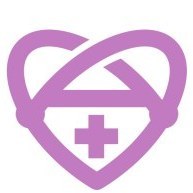-
allnurses (Editorial Team / Admin)
Nursing care is a complex field that requires a strong foundation of knowledge, skills, and compassion. To excel as a nurse, it's essential to grasp certain core concepts. We will explore some basics of what you need to know in these areas:
- Patient Assessment and Assessment Techniques
- Medication Administration and Safety
- Communication and Interpersonal Skills
- Legal and Ethical Considerations
- Disease Processes and Pathophysiology
Master these concepts with Picmonic! A visual memory aid that makes learning easier with unforgettable images and stories that are proven to increase memory retention. You can search any topic, browse playlists, and even create your own personalized Nursing 101 playlist.
Patient Assessment and Assessment Techniques
A comprehensive assessment is crucial for effective nursing care. This includes a head-to-toe assessment and accurate measurement of vital signs such as blood pressure, heart rate, respiratory rate, temperature, and oxygen saturation. This information is essential for evaluating a patient's overall health status.
Pain assessment is another nursing vital sign. Using appropriate pain assessment tools helps nurses effectively manage patient discomfort and ensure that patients receive adequate pain relief. Utilize the OPQRST mnemonic (onset, provoking or palliative, quality, radiation, severity, timing) to effectively assess subjective pain and provide appropriate pain management. Picmonic offers short, helpful videos that expand on this topic.
Furthermore, use the steps of the Nursing Process (ADPIE) to organize priority nursing actions:
- Assessment: Gathering information about a patient's health status, including vital signs, symptoms, physical findings, and medical history.
- Diagnosis: Identifying potential health problems based on assessment findings.
- Planning: Developing individualized care plans to address patient needs, set care goals, and identify expected outcomes.
- Implementation: Carrying out interventions prescribed in the care plan while involving both the patient and family in active care.
- Evaluation: Assessing the effectiveness of the care plan and making adjustments as needed.
Medication Administration and Safety
Nurses must administer medications safely and accurately. Following the five rights of medication administration (right patient, right drug, right dose, right route, right time) is essential to prevent medication errors.
Medication calculations and adverse drug reaction management are both critical nursing skills to master. Ensure accurate dosing and be prepared to address potential side effects. Learn more about drug reactions and their potential side effects with Picmonic's Pharmacological Nursing course. Be sure to take the multiple-choice quizzes to solidify your knowledge!
Medication reconciliation is the process of making sure that a patient's medication list is accurate upon admission and discharge. This helps to prevent medication errors and ensures continuity of care.
Communication and Interpersonal Skills
Effective communication and interpersonal skills are important in building strong relationships with patients and their families. Therapeutic communication techniques, such as active listening and empathy, can help nurses establish a positive connection with patients and support providing compassionate care.
Collaborating with other healthcare professionals is needed for delivering comprehensive patient care. Working together as a team ensures everyone is aligned and patients receive the best possible treatment.
Accurate and complete patient care documentation is necessary for legal and clinical purposes. Nurses must maintain detailed records of assessments, interventions, and patient outcomes.
Legal and Ethical Considerations
Beyond direct patient care, nurses must navigate legal and ethical considerations. By understanding and upholding these principles, nurses can provide patient care in a safe, respectful, and compassionate manner. Nurses are patient advocates for their patients' well-being. They must support patient rights, maintain confidentiality, obtain informed consent, and provide accurate and timely documentation. Additionally, nurses must apply the ethical principles in nursing: autonomy, beneficence, nonmaleficence, justice, fidelity, veracity, and accountability.
Don't forget to check out the Ethics playlist in the Picmonic library! It's packed with helpful Picmonics and key facts that can help guide nurses in daily decision making to ensure patients receive the safest and most compassionate care.
Disease Processes and Pathophysiology
Nurses need to understand common diseases and their pathophysiology. They have to know the underlying causes, clinical manifestations, and treatment options for various diseases.
QuoteTime saving tip: review disease processes and follow along with popular textbooks in the Picmonic Book playlist.
By mastering these fundamental areas, nurses can provide safe, effective, and compassionate care to their patients. By leveraging Picmonic alongside your traditional study methods, you can create a more comprehensive and effective learning experience. Test your knowledge after each Picmonic video with their spaced repetition quizzes.
Remember, ongoing learning is key in this ever-evolving field. You got this!
This is a sponsored article brought to you by allnurses.com in partnership with the advertiser. The views expressed in this article are those of the advertiser and do not necessarily reflect allnurses.com, its parent company, or its staff.

